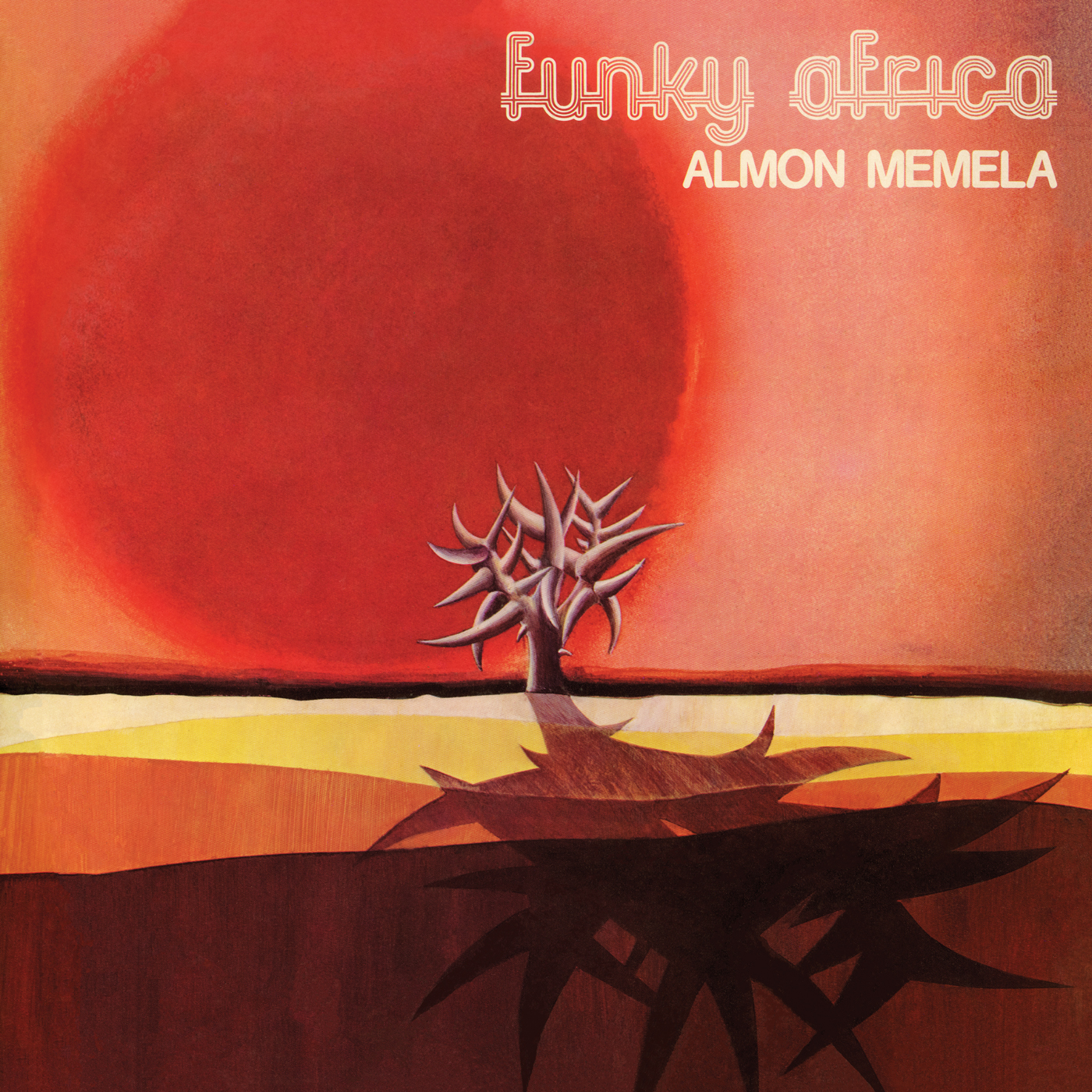The Breakdown
Call off the search! The chroniclers at We Are Busy Bodies continue their significant excavation of the rich seams of seventies South African jazz with the release of Almon Memela’s ‘Funky Africa’ (remastered by Noah Mintz and available from May 6th). This classic slab of soul-jazz rare groove, hotly pursued by crate diggers, turntablists and DJs for years now, has reached gold dust status mainly through its title track but there is so much more here to justify the clamour.
Originally issued in 1975, ‘Funky Africa’ is a testament to Almon Memela’s often unrecognised natural musicality and all round magic touch. Best known as a producer and composer, Memela was a self-taught guitarist who gravitated from his home town Donnybrook, through the tobacco factories of Durban and, in 1956, onto Johannesburg to work in the mines. On these travels he never ditched his early musical ambitions and, finding himself in the right place at the right time, became a guitar teacher at the city’s legendary Dorkay House. So rubbing shoulders with the likes of Dollar Brand, Hugh Masekela, Miriam Makeba and Kippie Moeketsi on a daily basis, locates Memela amongst the very roots of South African jazz. He may not have pushed on to achieve the notoriety of these seminal figures but if you do some Discogs detective work you’ll find his name behind so many releases from the mid sixties to seventies (check out Almon’s Jazz 8, Almon’s Jazz Kings, A.M. Stragglers and Abafana Bamaswazi). Still the ‘Funky Africa’ album is likely to remain his everlasting calling card.
The record inevitably opens with its namesake. A revisioning of Donny Hathaway and Leroy Hutson’s seminal ‘The Ghetto’, Memela keeps the instrumental, light and lively. It’s a crisp take, retaining that nimble bass line and brisk tambourine beats, but with some loose wristed guitar chops providing additional cross-rhythmic zing. What the ‘Funky Africa (The Ghetto)’ version brings, besides a canny 45rpm pop brevity, is a jazz tinged dynamism and improvisational flourish with vibrant piano and sax solos that know just when to scale up and cool down. To put it simply, Memela’s production and arrangement nails the essence of the groove.
Similarly the other cover on the album underlines Almon Memela’s effortless knack for capturing how we need to hear things. His take on the Fernando Arbex/ Herbie Mann perennial disco puller, ‘Hi-Jack (Your Love)’, bubbles and purrs with the same smooching rhumba rolls of the originals but there’s a subtle added earthiness here. Stripped of overdubs, with every move of the slick players exposed, the urgency brings an extra sparkle.
Frustratingly there were no musician credits on the original release of the‘Funky Africa’ album and so the make-up of the exemplary studio band that articulate Memela’s astute crossover sound remains a mystery. There is some tantalising speculation (see Gwen Ansell’s brilliant jazz blog –sisgwenjazz.wordpress.com) that a young Bheki Mseleku, the South African jazz titan, might have even been the pianist. This could account for the dashing keys that grace the whole record and his credit as composer of one of the highlight tracks, ‘Big Mama’. That tune, a bustling urban funk shuffle, all one note wah-wah and busy beats, sings to the energetic, free-flow interplay between flute and piano which so often elevates ‘Funky Africa’ to its deified status.
Besides the prime township, jit-jumping ‘Telephone’, credited to elusive afro-funkster Duke Lumumba and percussionist Rim Obeng, the rest of the tracks here are all Memela compositions. These tunes underline that although a soul-jazz-funk focus may be at the foundation of the record it’s not necessarily the touchstone. The hopeful, inspiring ‘Ntshonalanga’ opens with the guitar running through a rootsy highlife intro before settling into a sumptuous Soweto sway. Then there’s ‘Hamba Kahle’, which draws on a folk simplicity to support those heart swelling, wide horizon melodies that distinguish so much South African music. Even the bouncy country rock hustling of ‘Some Funky Things’ or the honky-tonk shimmy of ‘Bump The Wall’ rise higher on their inherent uplifting tunefulness.
The album comes back full circle to some steamy funk for the closing ‘The Things We Do In Soweto’. Maybe the most electric track, it has an infectious swagger and swing that demands attention. That clean, uncluttered sound, those minute details that add identity, the consistent quality of the musicianship, these are the roots of Funky Africa’s significance. This is dance music written and played live for you and now you can grab some and join in without taking out a loan.
Get your copy of ‘Funky Africa’ by Almon Memela from your local record store or direct from: https://almonmemela.bandcamp.com/album/funky-africa














No Comment